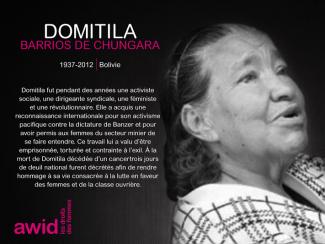Les interviews génèrent des renseignements détaillés que vous aurez du mal à obtenir à travers un sondage. Le sondage est surtout axé sur les données quantifiables et les questions fermées,par contre les interviews permettent d’obtenir les opinions d’expert-e-s comme des activistes et des donateurs, tout en utilisant des questions ouvertes qui précisent le contexte entourant les données résultant du sondage.
Dans cette section
Conseils d’ordre général
1. Avant de mener vos interviews
Envoyez aux personnes que vous allez interviewer une note de synthèse qui décrit les objectifs des interviews et de l’ensemble de votre recherche, en plus d’une liste de questions.
Ces personnes pourront ainsi préparer leurs réponses aux questions plus complexes et obtenir les renseignements qu’elles n’ont peut-être pas sous la main.
2. Pendant les interviews
- Pour gagner du temps, vous pouvez procéder aux interviews pendant que votre sondage est en cours.
- Tentez de rendre les entrevues aussi uniformes que possible pour faciliter une analyse systématique des résultats. Il s’agit notamment de poser les mêmes questions. La codification de réponses identiques sous chacune des questions vous permettra de déceler les tendances cachées.
- On peut aussi utiliser les interviews pour étoffer les résultats du sondage.
Ne fondez pas vos questions sur des hypothèses au sujet des connaissances de la personne interviewée.
Tentez plutôt de préciser ce qu’elle sait, ce qui produit également des informations
- NE DEMANDEZ PAS : « Compte tenu des tendances actuelles de financement en Suisse, est-ce que vous êtes au courant de certaines occasions de collaboration ? » Cette question présume que la personne interviewée connaît les tendances de financement et que sa compréhension de ces tendances est identique à la vôtre.
- DEMANDEZ : En premier lieu, « Quelle est votre compréhension des tendances de financement actuelles en Suisse ? », suivie de « Est-ce que vous êtes au courant de certaines occasions de collaboration ? » Ceci révèlera ce que la personne comprend, vous donnant encore plus d’informations que la première question.
Haut de page
Interviews spécialisées
1. Interviews auprès des donateurs
Les interviews auprès des donateurs vous permettront d’approfondir vos relations avec eux, ce qui sera utile lorsque vous entreprendrez les activités de plaidoyer qui succèderont à votre recherche. Vous en tirerez également une connaissance plus poussée des processus de prises de décisions adoptés par les bailleurs de fonds.
Suggestions de thèmes à aborder lors des interviews avec les donateurs :
- Quelles sont leurs priorités en matière de financement ? Pourquoi et comment ont-ils choisi ces priorités ? Par exemple, pourquoi choisissent-ils de subventionner des projets plutôt que d’allouer des financements de base ou vice-versa ?
- Quelles sont les sommes annuelles allouées à l’avancement des droits humains des femmes ? Ceci renforcera la fiabilité de l’ensemble des données recueillies.
- Ont-ils observé certaines tendances de financement et quelles sont les origines et les politiques sous-jacentes à ces tendances ?
- Quelle est leur théorie du changement social et comment influence-t-elle leurs relations avec les organisations de droits des femmes ?
2. Interviews auprès d’activistes et d’organisations de droits des femmes
Les interviews auprès d’activistes et d’organisations de droits des femmes vous renseigneront sur leurs réalités sur le terrain. Ici encore, ces interviews vous permettront d’approfondir vos relations qui peuvent être intégrées aux plaidoyers, particulièrement en vue de favoriser la collaboration entre donateurs et activistes.
Suggestions de thèmes à aborder lors des interviews avec les activistes et les organisations de droits des femmes :
- Les tendances à long terme des priorités de financement que les organisations de femmes ont observées et leurs incidences.
- Des stratégies féministes et collaboratives réussies de mobilisation des ressources, qui créent des mouvements solides et complémentaires.
- Expliquer pourquoi il est important de soutenir les mouvements de femmes et leurs efforts en matière d’organisation.
- La manière dont différents acteurs et actrices comprennent le processus de changement social et leur rôle en faveur/pour la réalisation de l’égalité de genre et des droits des femmes.
Haut de page
Résultats préliminaires
Pendant votre recherche WITM, nous vous recommandons de procéder à l’analyse des résultats préliminaires. La présentation de vos résultats préliminaires offre l’occasion de mener d’autres interviews et de recueillir des réactions sur votre processus de recherche et sur les résultats initiaux. Ces réactions peuvent être intégrées à votre recherche finale.
L’AWID organise des « rencontres WITM » pour partager les résultats préliminaires issus des données de sondage et des interviews. Ces rencontres permettent aux personnes qui y prennent part (activistes, organisations de droits des femmes et donateurs) de débattre et de discuter des résultats, de préciser le contexte, de rehausser le sentiment d’appropriation parmi les membres du mouvement et de fournir plus de commentaires en vue de la recherche finale.
Par exemple, l’AWID a profité du Pôle de mobilisation des ressources (RMH) pour les droits des femmes autochtones, dans le cadre du World Summit on Indigenous Philanthropy (Sommet mondial sur la philanthropie autochtone) pour lancer une présentation de ses résultats préliminaires.
Voir la présentation donnée lors du RMH (en anglais)
Haut de page
Étape précédente
4. Recueillez et analysez vos données
Étape suivante
6. Menez une recherche documentaire














